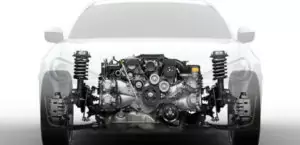The 1.4-liter 16-valve Volkswagen CGGB 1.4 MPi engine was assembled from 2009 to 2015 and was installed on such popular models as the fifth generation Polo, Skoda Fabia and Seat Leon. This power unit, in essence, was only an upgraded version of the BXW engine.
The EA111-1.4 series includes: AEX, AKQ, AXP, BBY, BCA, BUD, CGGA, CGGB.
Specifications
| Production years | 2009-2015 |
| Displacement, cc | 1390 |
| Fuel system | injector |
| Power output, hp | 86 |
| Torque output, Nm | 132 |
| Cylinder block | aluminum R4 |
| Block head | aluminum 16v |
| Cylinder bore, mm | 76.5 |
| Piston stroke, mm | 75.6 |
| Compression ratio | 10.5 |
| Features | DOHC |
| Hydraulic lifters | yes |
| Timing drive | belt |
| Phase regulator | no |
| Turbocharging | no |
| Recommended engine oil | 5W-30 |
| Engine oil capacity, liter | 3.2 |
| Fuel type | petrol |
| Euro standards | EURO 5 |
| Fuel consumption, L/100 km (for VW Polo 2012) — city — highway — combined |
8.0 4.7 5.9 |
| Engine lifespan, km | ~250 000 |
The engine was installed on:
- Volkswagen Polo 5 (6R) in 2009 – 2014;
- Seat Leon 2 (1P) in 2010 – 2012;
- Skoda Fabia 2 (5J) in 2010 – 2014;
- Skoda Roomster 1 (5J) in 2010 – 2015.
Disadvantages of the VW CGGB engine
- Compared to VAG turbo engines, this engine is much more reliable.
- Most often, owners complain about the quick failure of the ignition coils.
- The cause of floating engine speeds is usually a dirty throttle assembly or EGR.
- Timing belts serve approximately 90,000 km, and if any of them breaks, the valves bend.
- On long runs, hydraulic lifters often knock, and rings also lie.







Dear Sir,
Could you please send me the maintenance schedule and preventive maitenance of this engine. Do you recommend to clean the fuel injectors given that I add to the reservoir a fuel injector cleaner as additive.
Thanks